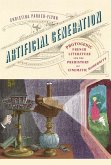Amidst a revival of interest in the novels of the abbé Prévost, this study addresses some of the interpretive issues that are being raised concerning his work, namely what intellectual, moral and aesthetic meaning should we seek in works that were designed as entertainments, and should we persist in rating Manon Lescaut more highly than the rest of Prévost's output? The narrative strategies and types of distortion inherent in each of Prévost's narrators are examined. More general observations are made on the mechanics of Prévost's narration such as the deceptive rhetorical devices of juxtaposing different accounts of the same event by two or more narrators and the use of the double registre or separation of narrator from protagonist. Other aspects of Prévost's fictional technique are considered - for example, the extent to which he drew upon contemporary traditions in the novel. Another important theme is the relationship between Prévost's fictional world and the real world in which topics such as other-portrayal and the handing of time reflect the degree of unreliability of the narrator's vision. Parallel episodes and interpolations are also used to illuminate subtly the work's central themes. The latter part of this study is dedicated to the moral dilemmas raised in Prévost's work in which the world - and the author's heroes - appear to be governed by three complex and often conflicting codes of behaviour - those of religion, honour, and 'love' or 'sensibility'. In particular, the problems of women are represented as well as the failure of the heroic ideal amongst the aristocracy. In religious matters, Prévost is revealed as a man of tolerance, ultimately concerned with human nature. The Prévost who emerges from this study combines a high degree of technical mastery with a serious moral interest in the human heart. His demystification of the ideal of heroism and his fragmented vision of the human personality are likely to appeal to the modern reader. The powerful dramatisation of moral conflict, familiar in Manon Lescaut, is indeed to be found throughout his work.



